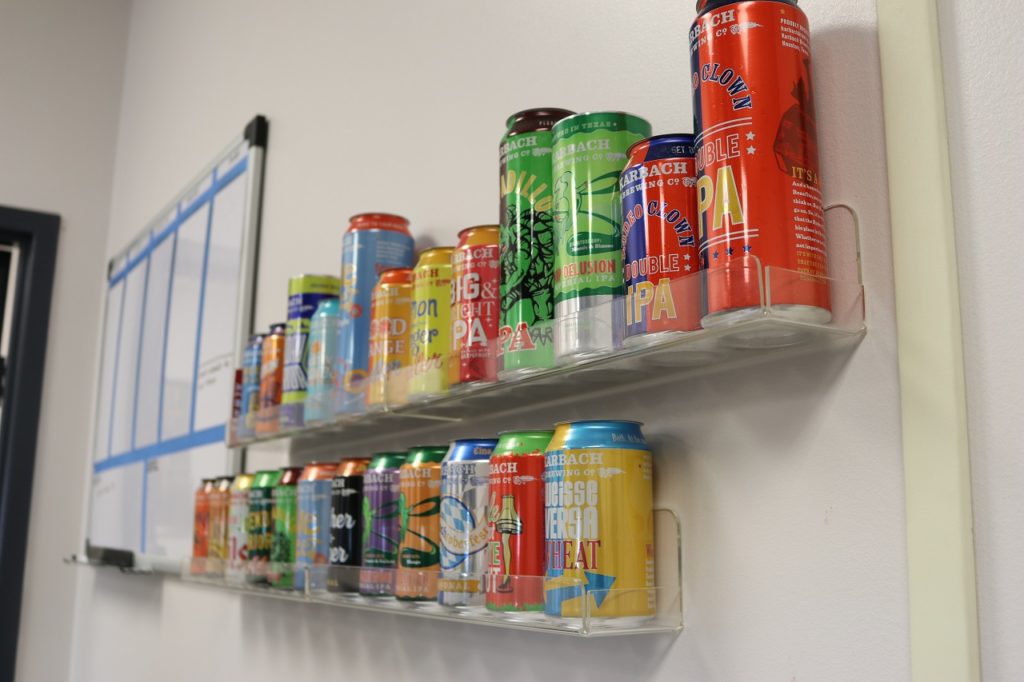The cannabis-infused drink company, Cann, has sold 150,000 cans of THC and CBD-infused, alcohol-free beverages since its launch in May 2019. Thanks to its investment of $5 million from the company Imaginary, Cann hopes to break through the legal obstacles and overcome investors around the viability of cannabis as a business. Cann wants to transform the social alcohol drinker into a Cann consumer.
Cann plans broader distribution for cannabis-infused beverages


Cann, a company specializing in cannabis-infused beverages, has just acquired $5 million in financing to improve its production and distribution capacity.
This new deal should make it possible to overcome the skepticism of future investors regarding this market and promote more responsible practices among the new generation of consumers.
Get the latest cannabis news and information about cannabis products with the Hemp.im mobile app. With the Hemp.im app you can view the complete collection of articles and commentary on the cannabis and CBD industry.
Cannabis-infused drinks reach a wider customer base
Launched in May 2019, Cann has managed to sell 150,000 cans of its cannabis-infused beverage despite an inadequate production infrastructure.
According to Luke Anderson and Jake Bullock, co-founders of the company, actual demand far outstrips supply. With this new investment, Cann plans to expand its distribution network by covering all states where cannabis is allowed to be marketed.
According to Cann’s founders, the cannabis-infused beverage marketed by their company contains 2 mg of THC and 4 mg of CBD and should be of more interest to the consumer than vaporizing or smoking. Anderson and Bullock’s ambition is to transform the social drinker of alcohol into a Cann consumer.
Cann competes with a cheaper cannabis-infused beverage
To achieve this, the company is banking seducing consumers by defining a more affordable price: $4 for the Cann cannabis-infused beverage, or $24 for the six-pack against $27 for competing drinks.
In addition, the $5 million investment is expected to enable the company to double its third-party services and develop its own distribution and delivery channels.


It should be noted that this amount comes from new investors led by the investment company Imaginary and by JM10, a cannabis company.
“Cann is enabling new forms of socially responsible alcohol-free consumption,” said Natalie Massenet, co-founder of Imaginary.
Supply chain obstacles still stand in the way
According to Anderson and Bullock, Cann is currently hampered by distribution constraints with dispensaries, and the company’s cannabis-infused beverages can hardly appear on grocery store shelves.
Furthermore, the small number of authorized distributors (600) does not allow the company to cover a mass-market customer base despite the fact that the market is in strong demand. As a result, few THC and CBD drinks appear on the shelves of shops.
However, if the company is able to overcome supply chain obstacles, Cann’s founders are confident that their cannabis-infused beverages can compete with traditional liqueurs.
To overcome these barriers, Cann is considering new distribution offerings. In particular, it plans to collaborate with Space Station in Sacramento, California to increase its production volumes.
Cannabis-infused beverages show that younger generations are moving towards sobriety
“We are trying to create a product that can appeal to mainstream consumers,” said Bullock.


Investors like Massenet view the investment in companies like Cann as a bet on the increasing movement toward sobriety among younger generations.
“We have been tracking the new generation of consumers who are searching for and embracing new forms of responsible social drinking which do not involve alcohol,” said Massenet.
“Cann, with its formulation that has the potency of a light beer without alcohol or calories, addresses this growing trend in a brilliantly formulated series of cannabis-infused beverages. Being obsessed with backing the best new disruptive consumer product companies, Imaginary also loves the fantastic branding and positioning of Cann,” she added.
__
(Featured image by Elevate via Unsplash)
DISCLAIMER: This article was written by a third party contributor and does not reflect the opinion of Hemp.im, its management, staff or its associates. Please review our disclaimer for more information.
This article may include forward-looking statements. These forward-looking statements generally are identified by the words “believe,” “project,” “estimate,” “become,” “plan,” “will,” and similar expressions. These forward-looking statements involve known and unknown risks as well as uncertainties, including those discussed in the following cautionary statements and elsewhere in this article and on this site. Although the Company may believe that its expectations are based on reasonable assumptions, the actual results that the Company may achieve may differ materially from any forward-looking statements, which reflect the opinions of the management of the Company only as of the date hereof. Additionally, please make sure to read these important disclosures.
First published in Fred Zone, a third-party contributor translated and adapted the article from the original. In case of discrepancy, the original will prevail.
Although we made reasonable efforts to provide accurate translations, some parts may be incorrect. Hemp.im assumes no responsibility for errors, omissions or ambiguities in the translations provided on this website. Any person or entity relying on translated content does so at their own risk. Hemp.im is not responsible for losses caused by such reliance on the accuracy or reliability of translated information. If you wish to report an error or inaccuracy in the translation, we encourage you to contact us.



Comments are closed for this post.